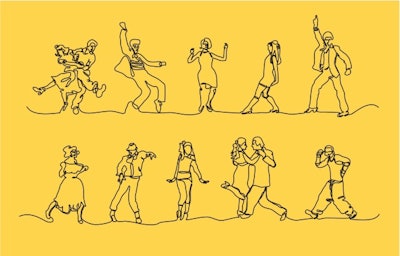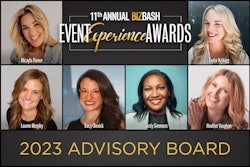
Event trends often do more than just entertain; they capture the zeitgeist, embody cultural shifts, and even tap into deep psychological needs for connection and expression. Understanding these underpinnings offers fascinating insights into why certain trends endure and how nostalgia often plays a pivotal role in contemporary events. Let's revisit each era to understand not just what made these trends tick then, but why they continue to resonate today.
1950s: The Allure of Stability
Signature trend: Cocktail parties
Psychological underpinning: After the upheaval of World War II, people craved stability and elegance. Cocktail parties offered a controlled environment where social norms could be reestablished.
Nostalgia factor: Today's speakeasy-style bars and vintage cocktail menus tap into the '50s yearning for a "simpler time."
Example event: Performances by the Rat Pack were the epitome of '50s sophistication, often resembling high-class cocktail parties themselves.
1960s: The Need for Rebellion
Signature trend: Music festivals
Psychological underpinning: With civil rights and anti-war movements, the collective psyche was primed for rebellion and communal experiences.
Nostalgia factor: Modern festivals like Coachella often incorporate '60s elements, from flower crowns to peace signs.
Example event: Woodstock became synonymous with the countercultural movement, embodying the era's spirit of rebellion.
1970s: Escape Into Fantasy
Signature trend: Disco nights
Psychological underpinning: Amid economic downturns and political scandals, disco offered an escapist fantasy.
Nostalgia factor: Retro dance nights and disco-themed events offer a similar escape today.
Example event: Studio 54 was the quintessential '70s escape, a playground where anything seemed possible.
1980s: Self-Expression and Materialism
Signature trend: Theme parties
Psychological underpinning: The '80s were a time of prosperity and self-expression, and theme parties allowed for both.
Nostalgia factor: Eighties nights and themed events let modern attendees break out the neon and relive—or experience for the first time—the excess of the era.
Example event: Live Aid was a dual-venue benefit concert that embodied the grandeur and impact that characterized the '80s.
1990s: The Quest for Authenticity
Signature trend: Raves and warehouse parties
Psychological underpinning: As a reaction to the '80s excess, the '90s sought something more "real" and raw.
Nostalgia factor: The revival of '90s grunge fashion and underground parties speaks to this quest for authenticity.
Example event: Starting as an underground event, Burning Man epitomized the '90s ethos of radical self-expression.
2000s: The Rise of the Individual
Signature trend: Pop-up events
Psychological underpinning: The growth of social media fostered individual branding; pop-up events catered to this with exclusivity and shareability.
Nostalgia factor: Even as trends move on, the 2000s idea of a personalized experience remains a key aspect of modern events.
Example event: Flash mobs turned the idea of an event into something viral, shareable, and deeply personal.
2010s: Experience Over Possessions
Signature trend: Immersive events
Psychological underpinning: With material needs largely met, people began seeking fulfilling experiences instead.
Nostalgia factor: These events often draw on themes from previous eras, providing a multilayered nostalgic experience.
Example event: Secret Cinema offers fully immersive experiences that often revolve around retro themes like '50s noir films or '80s classics.
2020s: A New Understanding of Connection
Signature trend: Hybrid events
Psychological underpinning: The pandemic forced us to reconsider what connection could mean, driving a blend of physical and digital experiences.
Nostalgia factor: In uncertain times, nostalgia provides comfort, making "throwback" elements popular in current hybrid events.
Example event: Artists like Travis Scott hosting virtual concerts within video games exemplify the blend of virtual and real-world elements.
From the yearning for stability in the '50s to our current reevaluation of what connection means, event trends serve as more than mere entertainment; they're a window into our collective psyche. Nostalgia acts as the glue, often bringing back trends long after their originating era has passed, proving that while times may change, the fundamental human needs and desires that fuel these trends remain surprisingly constant.
Sources
1. "Social and Psychological Functions of Nostalgia," ScienceDirect, 2020
2. "Why We're Wired to Feel Nostalgic," Psychology Today, 2019
3. "From Woodstock to Coachella: The Evolution of Music Festivals," Rolling Stone, 2018
4. "The Psychology of Experience," Harvard Business Review, 2015



















